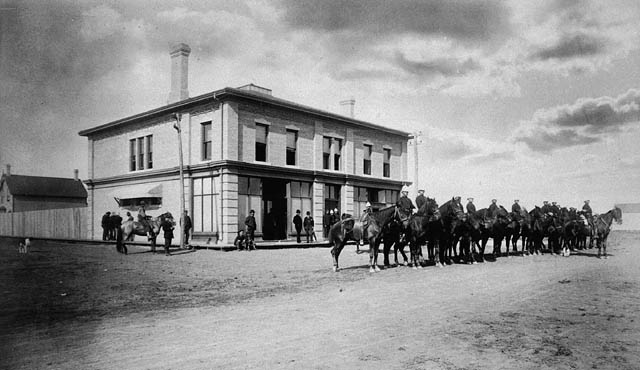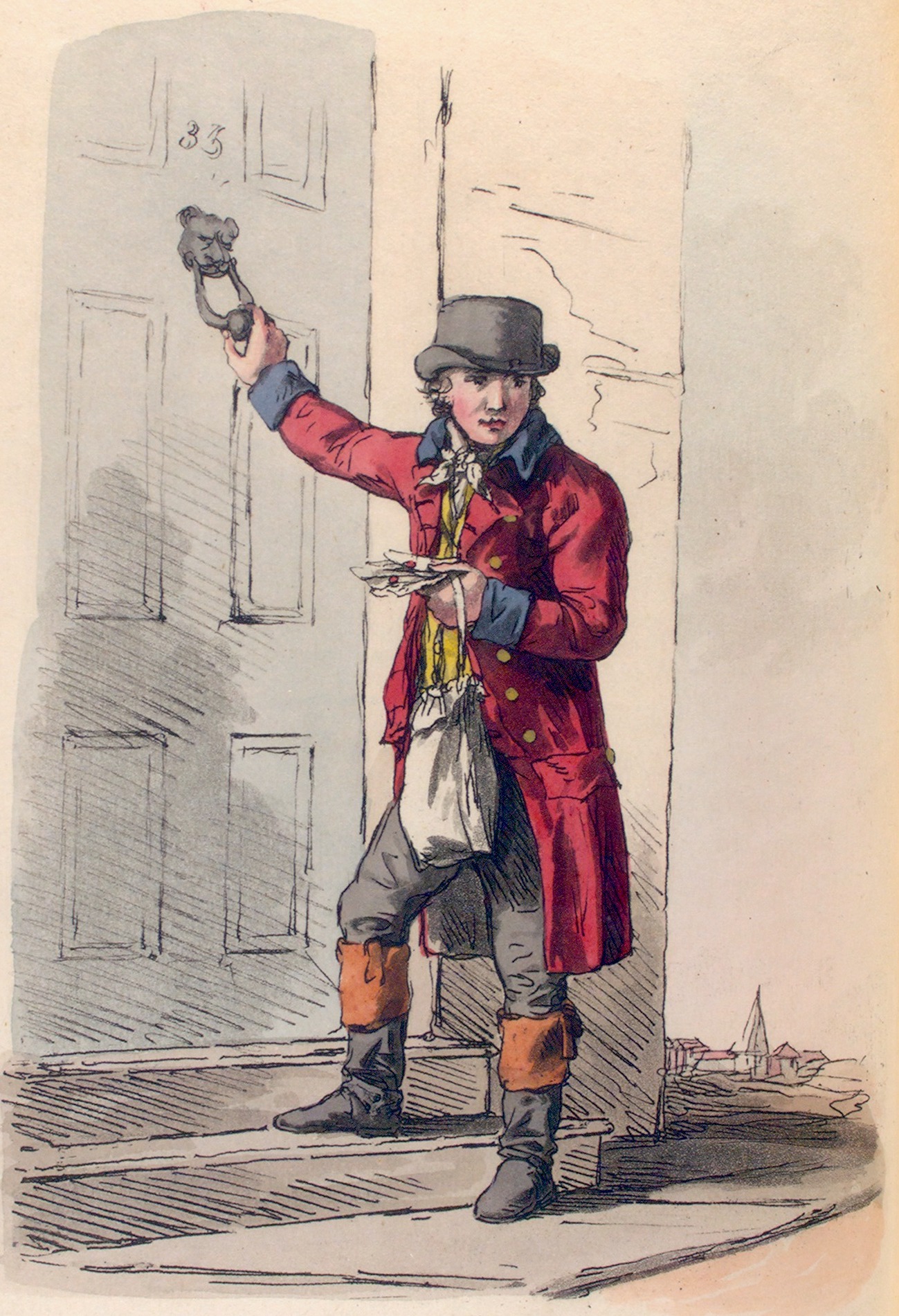|
James Franklin Bole
James Franklin Bole (April 23, 1869 – June 1954) was a businessman and political figure in Saskatchewan. He represented Regina City in the Legislative Assembly of Saskatchewan from 1905 to 1915 as a Liberal. He was born in Watford, Ontario, the son of James Bole and Ann Murdock, both natives of Ireland, and was educated in Watford and Regina. Bole came west with his family in 1882, settling on a homestead in Saskatchewan. He worked as a mail carrier in Regina and then worked as a printer's devil for the Regina '' Leader'' before returning to work on the family farm. Bole married Agnes De Courtnay in 1896. In 1898, he established the Regina Trading Company, Regina's first department store. Bole resigned his seat in the provincial assembly in 1915 to become Saskatchewan liquor commissioner; this post was eliminated when prohibition came into effect in the province the following year. He later became a representative for the Saskatchewan Life Insurance Company. Bole ... [...More Info...] [...Related Items...] OR: [Wikipedia] [Google] [Baidu] |
Saskatchewan
Saskatchewan ( ; ) is a Provinces and territories of Canada, province in Western Canada, western Canada, bordered on the west by Alberta, on the north by the Northwest Territories, on the east by Manitoba, to the northeast by Nunavut, and on the south by the United States, U.S. states of Montana and North Dakota. Saskatchewan and Alberta are the only landlocked provinces of Canada. In 2022, Saskatchewan's population was estimated at 1,205,119. Nearly 10% of Saskatchewan’s total area of is fresh water, mostly rivers, reservoirs and List of lakes in Saskatchewan, lakes. Residents primarily live in the southern prairie half of the province, while the northern half is mostly forested and sparsely populated. Roughly half live in the province's largest city Saskatoon or the provincial capital Regina, Saskatchewan, Regina. Other notable cities include Prince Albert, Saskatchewan, Prince Albert, Moose Jaw, Yorkton, Swift Current, North Battleford, Melfort, Saskatchewan, Melfort, and ... [...More Info...] [...Related Items...] OR: [Wikipedia] [Google] [Baidu] |
Regina City (provincial Electoral District)
Regina City is a former provincial electoral division in the Canadian province of Saskatchewan. Regina City elected a single MLA 1905 to 1917. It elected two members 1921 to 1948, three members in 1952 and 1956, and four members in 1960. In each election where Regina elected multiple MLAs, each voter could cast as many votes as there were seats to be filled (block voting). Its MLA 1916-1922 was Premier William Melville Martin. The district of Regina City existed from 1905 to 1964 when it was divided into: *Regina East (2 members) *Regina North *Regina South *Regina West (2 members) MLAs # James Franklin Bole, Liberal (1905-1916) #William Melville Martin, Liberal (1916-1922) # James Albert Cross, Liberal (1921-1925) # Donald Alexander McNiven, Liberal (1922-1929) # M. A. MacPherson, Conservative (1925-1934) #James Grassick, Conservative (1929-1934) #Percy McCuaig Anderson, Liberal (1934-1944) #William Franklin Kerr, Liberal (1934-1938) #Bamm David Hogarth, Liberal (1938) # Bernard ... [...More Info...] [...Related Items...] OR: [Wikipedia] [Google] [Baidu] |
Legislative Assembly Of Saskatchewan
The Legislative Assembly of Saskatchewan is the legislative chamber of the Saskatchewan Legislature in the province of Saskatchewan, Canada. Bills passed by the assembly are given royal assent by the Lieutenant Governor of Saskatchewan, in the name of the King in Right of Saskatchewan. The assembly meets at the Saskatchewan Legislative Building in Regina. There are 61 constituencies in the province, which elect members of the Legislative Assembly (MLAs) to the Legislative Assembly. All are single-member districts, though the cities of Regina, Saskatoon and Moose Jaw were in the past represented through multi-member districts, with members elected through Block Voting. The legislature has been unicameral since its establishment; there has never been a provincial upper house. The 29th Saskatchewan Legislature was elected at the 2020 Saskatchewan general election. Assemblies Party standings The current party standings in the assembly are as follows: Members *Member in B ... [...More Info...] [...Related Items...] OR: [Wikipedia] [Google] [Baidu] |
Saskatchewan Liberal Party
The Saskatchewan Liberal Party is a liberal political party in the Canadian province of Saskatchewan. The party was the provincial affiliate of the Liberal Party of Canada until 2009. It was previously one of the two largest parties in the province, along with the Saskatchewan New Democratic Party and its precursors on its left, before being eclipsed by the Progressive Conservative Party of Saskatchewan from the right and later deserted by several members who contributed to the establishment of the Saskatchewan Party, the new centre-right dominant in the province since 1997. History Early history The party dominated Saskatchewan politics for the province's first forty years and provided six of the first seven Premiers who served between the province's creation in 1905 and World War II. Located on the middle of the political spectrum, it assiduously courted "ethnic" (i.e., non-British) voters and the organized farm movement. It refused to pander to " nativist" sentiment that culm ... [...More Info...] [...Related Items...] OR: [Wikipedia] [Google] [Baidu] |
Ireland
Ireland ( ; ga, Éire ; Ulster Scots dialect, Ulster-Scots: ) is an island in the Atlantic Ocean, North Atlantic Ocean, in Northwestern Europe, north-western Europe. It is separated from Great Britain to its east by the North Channel (Great Britain and Ireland), North Channel, the Irish Sea, and St George's Channel. Ireland is the List of islands of the British Isles, second-largest island of the British Isles, the List of European islands by area, third-largest in Europe, and the List of islands by area, twentieth-largest on Earth. Geopolitically, Ireland is divided between the Republic of Ireland (officially Names of the Irish state, named Ireland), which covers five-sixths of the island, and Northern Ireland, which is part of the United Kingdom. As of 2022, the Irish population analysis, population of the entire island is just over 7 million, with 5.1 million living in the Republic of Ireland and 1.9 million in Northern Ireland, ranking it the List of European islan ... [...More Info...] [...Related Items...] OR: [Wikipedia] [Google] [Baidu] |
Regina, Saskatchewan
Regina () is the capital city of the Provinces and territories of Canada, Canadian province of Saskatchewan. The city is the second-largest in the province, after Saskatoon, and is a commercial centre for southern Saskatchewan. As of the 2021 Canadian census, 2021 census, Regina had a List of cities in Saskatchewan, city population of 226,404, and a List of census metropolitan areas and agglomerations in Canada, Metropolitan Area population of 249,217. It is governed by Regina City Council. The city is surrounded by the Rural Municipality of Sherwood No. 159. Regina was History of Northwest Territories capital cities, previously the seat of government of the Northwest Territories, North-West Territories, of which the current provinces of Saskatchewan and Alberta originally formed part, and of the District of Assiniboia. The site was previously called Wascana ("Buffalo Bones" in Cree), but was renamed to Regina (Latin for "Queen") in 1882 in honour of Queen Victoria. This decisio ... [...More Info...] [...Related Items...] OR: [Wikipedia] [Google] [Baidu] |
Homestead Principle
The homestead principle is the principle by which one gains ownership of an unowned natural resource by performing an act of original appropriation. Appropriation could be enacted by putting an unowned resource to active use (as with using it for produce some product), joining it with previously acquired property or by marking it as owned (as with livestock branding). Proponents of intellectual property hold that ideas can also be homesteaded by originally creating a virtual or tangible representation of them. Others argue that since tangible manifestations of a single idea will be present in many places, including within the minds of people, this precludes their being owned in most or all cases. Homesteading is one of the foundations of Rothbardian anarcho-capitalism and right-libertarianism. In political philosophy John Locke In his 1690 work ''Second Treatise of Government'', Enlightenment philosopher John Locke advocated the Lockean proviso which allows for homes ... [...More Info...] [...Related Items...] OR: [Wikipedia] [Google] [Baidu] |
Mail Carrier
A mail carrier, mailman, mailwoman, postal carrier, postman, postwoman, or letter carrier (in American English), sometimes colloquially known as a postie (in Australia, Canada, New Zealand, and the United Kingdom), is an employee of a post office or postal service, who delivers mail and parcel post to residences and businesses. The term "mail carrier" came to be used as a gender-neutral substitute for "mailman" soon after women began performing the job. In the Royal Mail, the official name changed from "letter carrier" to "postman" in 1883, and "postwoman" has also been used for many years. United States In the United States, there are three types of mail carriers: City Letter Carriers, who are represented by the National Association of Letter Carriers; Rural Carriers, who are represented by the National Rural Letter Carriers' Association; and Highway Contract Route carriers, who are independent contractors. While union membership is voluntary, city carriers are organized ... [...More Info...] [...Related Items...] OR: [Wikipedia] [Google] [Baidu] |
Printer's Devil
A printer's devil was a young apprentice in a printing establishment who performed a number of tasks, such as mixing tubs of ink and fetching type. Notable writers including Ambrose Bierce, Benjamin Franklin, Walt Whitman, and Mark Twain served as printer's devils in their youth. Origins The term "printer's devil" been ascribed to the apprentices' hands and skin getting stained black with ink when removing sheets of paper from the tympan. In 1683, English printer Joseph Moxon wrote that "devil" was a humorous term for boys who were covered in ink: "whence the Workmen do Jocosely call them Devils; and sometimes Spirits, and sometimes Flies." Once cast metal type was used, worn, or broken, it was thrown into a "hellbox", after which it was the printer's devil's job to either put it back in the job case, or take it to the furnace to be melted down and recast. Many explanations have been given for the religious or supernatural connotations of the term. From the Middle Ages onward, p ... [...More Info...] [...Related Items...] OR: [Wikipedia] [Google] [Baidu] |
Leader-Post
The ''Regina Leader-Post'' is the daily newspaper of Regina, Saskatchewan, Canada, and a member of the Postmedia Network. Founding The newspaper was first published as ''The Leader'' in 1883 by Nicholas Flood Davin, soon after Edgar Dewdney, Lieutenant-Governor of the North-West Territories, decided to name the vacant and featureless site of Pile-O-Bones, renamed Regina by Princess Louise, Duchess of Argyll, the wife of the Governor General of Canada, as territorial capital, rather than the previously-established Battleford, Troy and Fort Qu'Appelle, presumably because he had acquired ample land on the site for resale. "A group of prominent citizens approached lawyer Nicholas Flood Davin soon after his arrival in Regina and urged him to set up a newspaper. Davin accepted their offerand their $5000 in seed money. The Regina Leader printed its first edition on March 1, 1883." Published weekly by the mercurial Davin, it almost immediately achieved national prominence during the Nort ... [...More Info...] [...Related Items...] OR: [Wikipedia] [Google] [Baidu] |
Prohibition In Canada
Prohibition in Canada was a ban on alcoholic beverages that arose in various stages, from local municipal bans in the late 19th century (extending to the present in some cases), to provincial bans in the early 20th century, and national prohibition (a temporary wartime measure) from 1918 to 1920. The relatively large and powerful beer and alcohol manufacturing sector, and the huge working class that purchased their products, failed to convince any of the governments to reverse their stance on prohibition. Most provinces repealed their bans in the 1920s, though alcohol was illegal in Prince Edward Island from 1901 to 1948. By comparison, Ontario's temperance act was in effect from 1916 to 1927. As legislation prohibiting the consumption of alcohol was repealed, it was typically replaced with regulation imposing restrictions on the sale of alcohol to minors, and with excise taxes on alcoholic products. Origins Temperance movement Canadians drank heavily during the nineteenth ... [...More Info...] [...Related Items...] OR: [Wikipedia] [Google] [Baidu] |







